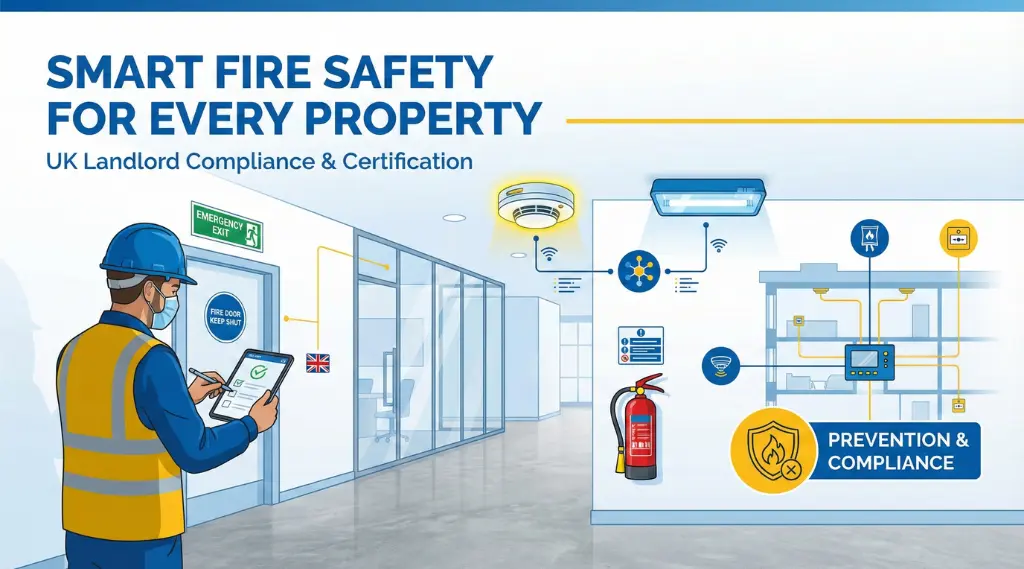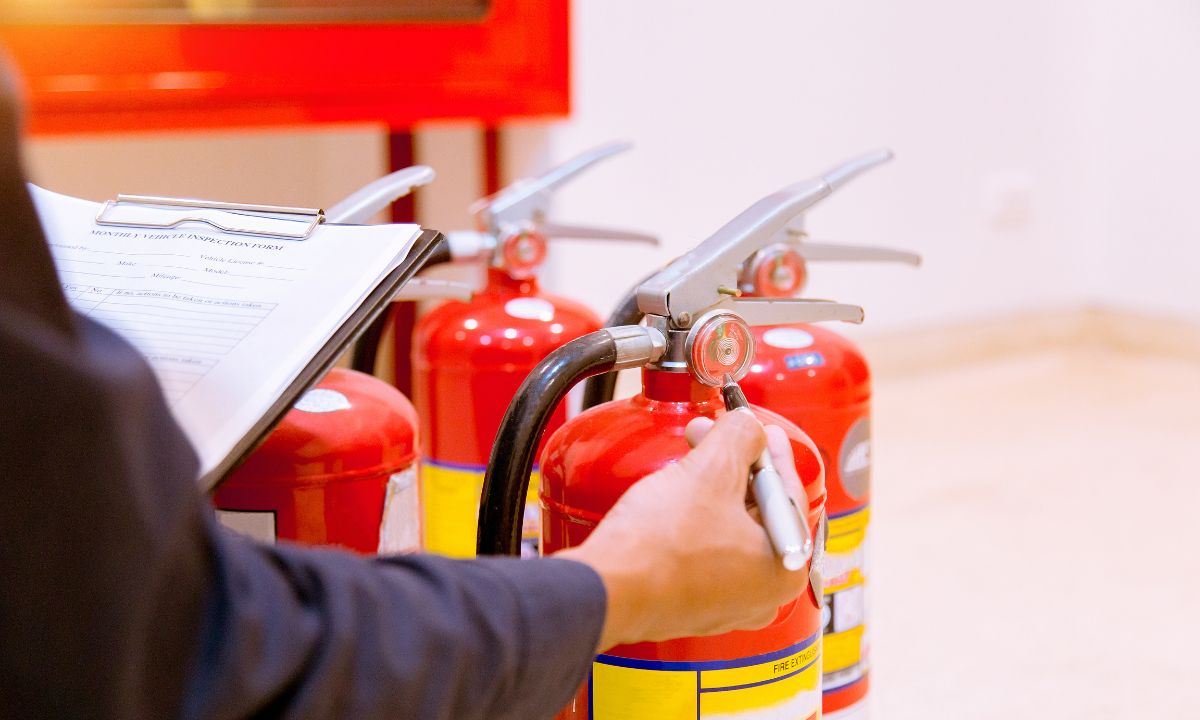Safety certificates play a critical role in various industries, ensuring that products and workplaces adhere to safety standards and regulatory requirements. However, obtaining these certificates can be a complex and time-consuming process. This is where trusted partners come into play. In this article, we’ll explore the benefits of using a trusted partner for safety certificates and why it’s a wise choice for businesses looking to enhance safety, compliance, and overall brand reputation.
The Role of Safety Certificates
Safety certificates, often referred to as safety compliance certificates or safety certifications, are documents issued to demonstrate that a product or a workplace complies with safety standards, regulations, and industry-specific guidelines. These certificates are crucial for ensuring the well-being of employees, consumers, and the environment, as well as for maintaining legal compliance.
In various industries, safety certificates are mandatory, and non-compliance can result in significant legal consequences, fines, and damage to a company’s reputation. Therefore, organizations are continually seeking efficient and reliable ways to obtain these certificates.
Significance of Using a Trusted Partner
The process of obtaining safety certificates can be intricate and demanding. It requires a profound understanding of safety standards, industry-specific regulations, and the ability to navigate a bureaucratic maze. Businesses can choose to navigate this process themselves or rely on trusted partners with expertise in safety compliance.
Choosing a trusted partner for safety certificates is becoming increasingly common and beneficial. Such partners have the experience, knowledge, and resources to guide companies through the certification process. They can offer tailored solutions, ensuring that businesses achieve compliance efficiently and maintain their reputation while minimizing the risks associated with non-compliance.
Benefits of Using a Trusted Partner for Safety Certificates

Expertise and Knowledge
One of the primary benefits of using a trusted partner for safety certificates is the partner’s expertise and knowledge in safety compliance. These partners have a deep understanding of safety standards and regulations, as well as the specific requirements within different industries. They are often staffed with experts who can navigate complex regulatory landscapes and provide businesses with the guidance they need to achieve compliance.
In addition to their knowledge, trusted partners stay updated with the latest changes and updates in safety regulations. This proactive approach ensures that businesses remain compliant, even as regulations evolve.
For example, in the food industry, safety standards are constantly changing due to new research and technologies. A trusted partner specializing in food safety can help businesses stay on top of these changes, adapt to new requirements, and maintain their certificates.
Reliability and Credibility
Trusted partners for safety certificates have a proven track record of compliance. They have a history of helping businesses obtain and maintain their certificates without facing legal issues or fines. This reliability is a significant advantage for companies seeking to protect their brand reputation.
When businesses work with trusted partners, they can rely on their partners’ expertise and connections to regulatory authorities. These partners have established relationships and credibility within the industry, making it easier for businesses to gain trust and recognition in the eyes of regulatory bodies.
In the pharmaceutical industry, for instance, a trusted partner can provide assurance that a company’s products adhere to stringent safety and quality standards. This can result in faster approvals and market access, which is critical in a highly competitive market.
Time and Cost Efficiency
Navigating the certification process on your own can be time-consuming and expensive. It often requires dedicating substantial resources, both in terms of personnel and finances. By working with a trusted partner, businesses can streamline the certification process, making it more efficient and cost-effective.
Trusted partners have the expertise and knowledge to guide companies through the process swiftly and efficiently. They can help businesses identify potential issues and address them before they become costly problems. In many cases, they can also leverage their relationships with regulatory authorities to expedite the certification process.
For example, in the construction industry, obtaining safety certificates for building projects can be a complex and lengthy process. A trusted partner experienced in construction safety can help streamline the process, saving time and reducing costs.
Access to Resources and Technology
Trusted partners often have access to advanced testing and evaluation equipment. This is especially valuable in industries where safety certificates require rigorous testing and data analysis. By using their resources and technology, these partners can help businesses ensure that their products or workplaces meet safety standards.
In the automotive industry, for instance, safety certificates often require extensive crash testing and analysis of vehicle performance. A trusted partner specializing in automotive safety can provide access to state-of-the-art testing facilities and equipment, ensuring that the necessary tests are conducted accurately and efficiently.
Additionally, trusted partners have a network of contacts and relationships with relevant authorities and agencies. This network can be instrumental in addressing any certification-related issues that may arise during the process. It can also provide insights into best practices and emerging trends.
Customized Solutions
One of the key advantages of using a trusted partner for safety certificates is the ability to receive customized solutions. These partners understand that each business and industry has unique needs and challenges. They can tailor their approaches to meet these specific requirements.
For example, in the chemical manufacturing industry, different products may require varying safety certifications depending on their intended use and potential hazards. A trusted partner can work closely with the manufacturer to ensure that each product receives the appropriate certification, taking into account its unique characteristics.
This customization allows businesses to achieve compliance without unnecessary burdens. It ensures that the safety certificates obtained are specific to the product or workplace in question, offering more precise and effective protection.
Risks of Not Using a Trusted Partner
While the advantages of using trusted partners for safety certificates are evident, it’s also essential to consider the risks associated with not doing so. Businesses that choose to navigate the certification process independently may face significant challenges and potential consequences.
Legal Consequences and Fines
Failure to obtain and maintain the necessary safety certificates can result in legal consequences and fines. Regulatory authorities have the power to impose penalties on businesses that do not adhere to safety standards and compliance requirements. These fines can be substantial and have a negative impact on a company’s finances and reputation.
In the energy sector, for example, companies operating power plants must adhere to strict safety standards. Non-compliance can result in accidents, environmental damage, and legal actions leading to substantial fines.
Damage to Brand Reputation and Consumer Trust
In industries where safety is paramount, such as the food and pharmaceutical sectors, a lack of safety certificates can lead to a loss of consumer trust and a damaged brand reputation. Consumers rely on these certificates as assurance that the products they use are safe and meet quality standards.
For instance, a food manufacturer that faces a safety recall due to non-compliance with food safety standards can experience significant damage to its brand reputation. Consumers may lose trust in the brand, resulting in a loss of market share and revenue.
Inefficient Allocation of Resources
Navigating the safety certification process without a trusted partner can be inefficient and costly. Businesses may allocate significant resources, including personnel, time, and funds, to understand, implement, and maintain safety standards. This diverts resources from core business activities and can slow down growth and innovation.
In the aerospace industry, for example, the certification process for aircraft safety is highly complex and resource-intensive. Companies that choose not to work with trusted partners may find themselves dedicating excessive time and effort to certification, potentially compromising their ability to develop and manufacture new aircraft.
Further Reading: The Importance of Landlord Safety Certificates
How to Choose a Trusted Partner for Safety Certificates
Selecting the right trusted partner for safety certificates is a critical decision for businesses. The choice can significantly impact the efficiency and effectiveness of the certification process. Here are some key factors to consider when evaluating and choosing a partner:
Criteria for Selection
![]() Industry Experience: Look for partners with specific experience in your industry. A partner familiar with the unique challenges and regulations of your sector is more likely to provide effective solutions.
Industry Experience: Look for partners with specific experience in your industry. A partner familiar with the unique challenges and regulations of your sector is more likely to provide effective solutions.![]() Expertise in Safety Standards: Ensure that the partner has a deep understanding of safety standards and regulations relevant to your business. They should be up to date with the latest developments.
Expertise in Safety Standards: Ensure that the partner has a deep understanding of safety standards and regulations relevant to your business. They should be up to date with the latest developments.![]() Reputation and References: Check the partner’s reputation and ask for references from previous clients. A strong track record is a good indicator of their reliability.
Reputation and References: Check the partner’s reputation and ask for references from previous clients. A strong track record is a good indicator of their reliability.![]() Resources and Technology: Assess the partner’s access to advanced equipment and technology, especially if your certification process requires testing and analysis.
Resources and Technology: Assess the partner’s access to advanced equipment and technology, especially if your certification process requires testing and analysis.![]() Customization: Inquire about their ability to provide tailored solutions that address your specific needs and challenges.
Customization: Inquire about their ability to provide tailored solutions that address your specific needs and challenges.![]() Networking and Relationships: Partners with strong connections to regulatory authorities and agencies can often expedite the certification process.
Networking and Relationships: Partners with strong connections to regulatory authorities and agencies can often expedite the certification process.
Due Diligence and Research
Before making a decision, conduct thorough due diligence and research on potential partners. This includes reviewing their websites, reading case studies, and checking for any certifications or awards that may indicate their expertise and credibility.
It’s also valuable to schedule meetings or consultations with potential partners to discuss your needs and objectives. This allows you to gauge their responsiveness, communication, and willingness to work closely with your team.
Evaluating Qualifications and References
Ask potential partners for qualifications and references, and take the time to contact their previous clients to learn about their experiences. Inquire about the overall process, timelines, and outcomes. This firsthand feedback can help you make an informed decision.
In summary, choosing a trusted partner for safety certificates requires careful consideration of their industry experience, expertise, reputation, resources, and customization capabilities. By conducting due diligence and gathering references, businesses can make an informed choice that will positively impact their certification process and overall safety compliance.
Read Also About: Landlord Responsibilities: Electrical Safety Certificates in London
Conclusion
Using a trusted partner for safety certificates is an advantageous strategy for businesses across various industries. These partners offer expertise, reliability, time and cost efficiency, access to resources and technology, and tailored solutions. They enable businesses to navigate the complex certification process with ease and maintain their brand reputation while avoiding legal consequences and fines.
Moreover, the risks associated with not using a trusted partner, such as legal consequences, damage to brand reputation, and inefficient resource allocation, underscore the importance of making a well-informed choice.
Ultimately, the decision to partner with a trusted entity for safety certificates can have a significant impact on an organization’s long-term success. It ensures that products and workplaces adhere to safety standards, regulatory compliance is maintained, and consumer trust remains intact. In an increasingly competitive and safety-conscious world, this strategic choice can make all the difference.












